Russia – Ukraine: ICRC supports large-scale repatriation of human remains
… of human remains between Russia and Ukraine following a recent agreement … was agreed following negotiations between Russia and Ukraine in Istanbul on 2 June 2025. …
… of human remains between Russia and Ukraine following a recent agreement … was agreed following negotiations between Russia and Ukraine in Istanbul on 2 June 2025. …
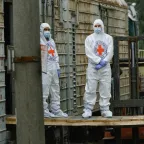
… and like many who are living through the Russia-Ukraine international armed conflict, …

Mental health is key to our overall health. Islam Alaraj, who heads up the ICRC's mental health and psychosocial work in Ukraine, explains the importance of mental health support in the country. We …

27-02-2015 Geneva / Kiev / Moscow (ICRC) – ICRC President Peter Maurer today completed high-level talks in Moscow and Kiev, in which he focused on the severe humanitarian crisis in eastern Ukraine …
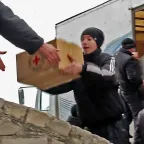
… or fill our online form . In Russia - 8 800 600 92 69 (free of charge) or +7 … Red Cross Society at 0 800 332 656. In Russia, you can contact the Russian Red Cross … call us toll-free at +380 800 300 155. In Russia, you can call us at 8 800 600 92 69 …
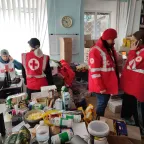
… around 140 people have had safe passage to Russia or Ukraine. As a result of fighting in … we have facilitated their journey back to Russia through multiple operations via Belarus … between the parties, ICRC teams in Belarus, Russia and Ukraine, as well as with our …

… deliver assistance to people affected by the Russia-Ukraine international armed conflict. …
… the ICRC has helped people affected by the Russia-Ukraine international armed conflict …
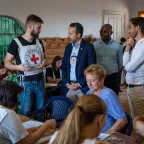
Nadezhda and her husband Vasily are from the village of Blizhneye, in the Donetsk region. They were school sweethearts who have been married for many years. This year, on a March evening, they were …

… infrastructure in the context of the Russia-Ukraine international armed conflict are …
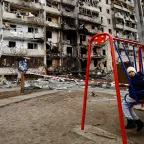
Try one of the following resources:
Created in 1863, the ICRC library, alongside the ICRC archives, provides an indispensable documentary reference on the organization itself and international humanitarian law.
International humanitarian law is based on a number of treaties, in particular the Geneva Conventions of 1949 and their Additional Protocols, and a series of other instruments.
Customary international humanitarian law consists of rules that come from "a general practice accepted as law" and that exist independent of treaty law.